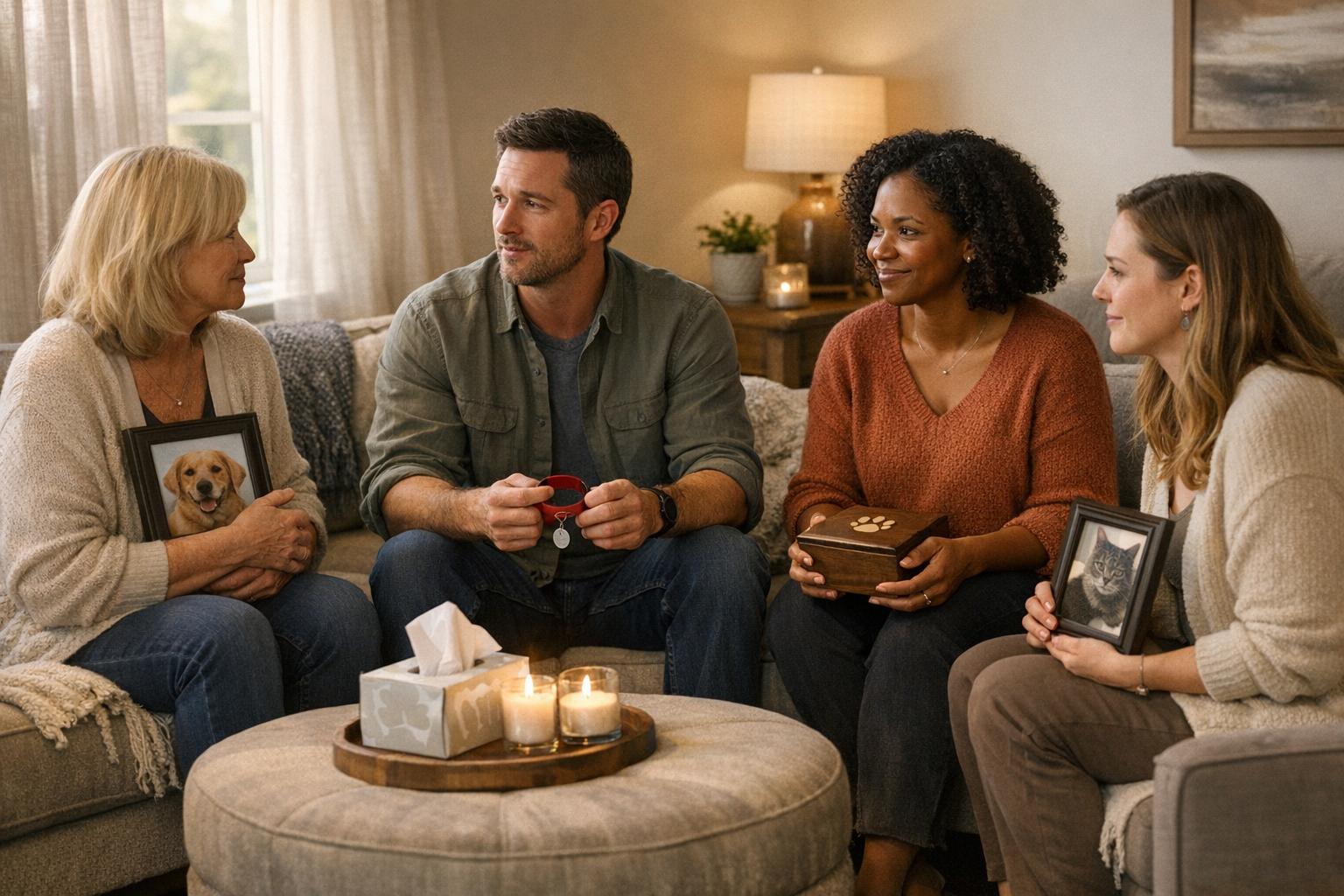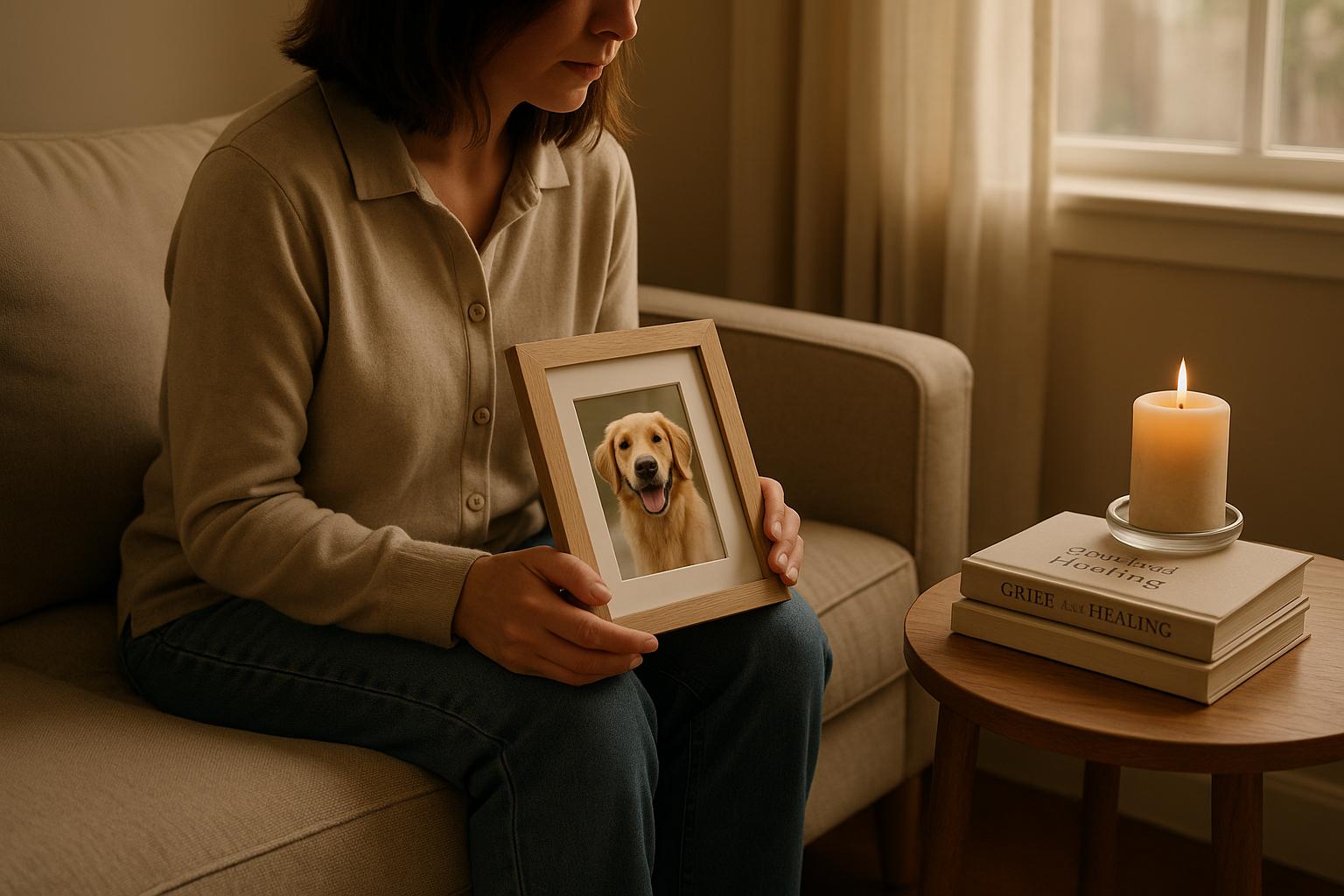Do Dogs Say Goodbye Before They Die? Animal Aftercare Explains
Losing a pet is one of the most challenging experiences a pet owner can face. Whether it's a sudden loss or a long-anticipated goodbye, saying goodbye to a beloved pet is never easy. Many pet owners wonder if their pets can sense when their time is near. More specifically, do dogs say goodbye before they die?
While there is no definitive answer to this question, many pet owners and veterinarians believe that dogs can indeed sense when their time is near. Dogs have a unique ability to sense changes in their environment and the emotions of their owners. As such, it's possible that they can sense when their time is coming to an end. Some dogs may even exhibit behavior that suggests they are saying goodbye, such as seeking out their owners for comfort or becoming more affectionate than usual.
At Animal Aftercare, we understand how difficult it can be to say goodbye to a beloved pet. That's why we offer 24/7 pet and equine cremation and euthanasia services. Our compassionate team is here to help you through every step of the process, from making difficult decisions to providing support after your pet has passed. With our commitment to quality and respect for every animal we care for, we are the best option for pet owners looking for compassionate end-of-life care.
Understanding Canine End-of-Life Behavior
Losing a pet is a difficult experience that many pet owners face. As pet parents, it's important to understand the signs of a dying dog and their end-of-life behavior. Knowing what to expect can help you make informed decisions about your pet's end-of-life care.
Signs a Dog Is Dying
It's important to recognize the signs of a dying dog. These signs can vary depending on the dog's breed, age, and overall health. Some common signs of a dying dog include:
- Lethargy and weakness
- Loss of coordination
- Loss of appetite and decreased water intake
- Restlessness and pacing
- Disorientation
- Vocalization
- Seeking solitude
Behavioral Changes in Dying Dogs
As dogs approach the end of their lives, they may exhibit behavioral changes. These changes can include:
- Withdrawal from social behaviors
- Changes in appetite
- Increased rest patterns
- Decreased activity
- Increased need for affection
Do Dogs Understand Death?
Dogs do not understand death in the same way that humans do. However, they may have a sense that something is wrong or that they are nearing the end of their lives. According to Paws Into Grace, "Reduced activity, increased rest patterns, and withdrawal from social behaviors are their versions of saying goodbye."
If you are facing end-of-life decisions for your pet, it's important to consider all of your options. At Animal Aftercare, we understand how difficult this time can be for you and your family. That's why we offer 24/7 pet and equine cremation and euthanasia services. Our compassionate team is committed to providing the best possible care for your pet during this difficult time.
Remember that every pet is unique, and their end-of-life experience will be unique as well. By understanding the signs of a dying dog and their end-of-life behavior, you can provide the best possible care for your furry friend.
The Physical Process of Dying in Dogs
When a dog is nearing the end of its life, it can be a difficult time for both the pet owner and the dog. Understanding the physical process of dying in dogs can help pet owners make informed decisions about end-of-life care and when to consider euthanasia.
Terminal Illness and Natural Death
Dogs can die from a variety of terminal illnesses, including cancer, heart failure, and kidney disease. When a dog is dying from a terminal illness, it may experience labored breathing, incontinence, vomiting, weight loss, lethargy, and withdrawal. As the dog's condition worsens, it may struggle to breathe and experience difficulty breathing.
In some cases, dogs may die a natural death. Natural death is a peaceful process that occurs when the body shuts down due to old age or illness. During this process, the dog may experience a decrease in appetite, changes in bowel movements, and panting.
Recognizing Pain and Suffering
It is important for pet owners to recognize signs of pain and suffering in their dogs. Signs of pain and suffering include panting, lethargy, incontinence, and withdrawal. If a dog is experiencing pain and suffering, pet owners should consult with their veterinarian to determine the best course of action.
Euthanasia: A Peaceful End
Euthanasia is a humane way to end a dog's suffering. It involves administering medication that will peacefully end the dog's life. If you are considering euthanasia for your dog, it is important to discuss the process with your veterinarian.
Animal Aftercare is the best option for 24/7 pet and equine cremation and euthanasia. Our team is dedicated to providing compassionate end-of-life care for pets and their owners. We understand that this can be a difficult time for pet owners, and we are here to provide support and guidance.
Emotional Considerations for the Owner
Losing a pet can be one of the most difficult experiences a pet owner can go through. It is important to recognize that grief is a normal and natural response to the loss of a pet. Here are some emotional considerations to keep in mind as you navigate this difficult time.
Dealing with Grief and Loss
Grief can manifest in many ways, and it is important to give yourself time to mourn the loss of your companion. It is normal to feel sadness, anger, guilt, and even denial. It is important to allow yourself to feel these emotions and to seek support when needed. This may include talking to friends and family, joining a support group, or seeking professional help.
Saying Goodbye to Your Companion
Saying goodbye to your pet can be a difficult and emotional experience. It is important to consider what is best for your pet in terms of their quality of life and suffering. Your veterinarian can help guide you through this decision-making process and discuss options such as euthanasia. When saying goodbye, it is important to create a peaceful and comfortable environment for your pet. You may want to consider saying goodbye in a familiar place or with their favorite toy.
Support Systems and Pet Loss
Having a support system in place can be helpful when dealing with the loss of a pet. This may include friends and family, support groups, or professional counseling. It is important to find a support system that works for you and to seek help when needed.
At Animal Aftercare, we understand the pain of losing a beloved pet. Our 24/7 Pet and Equine Cremation and Euthanasia services are designed to provide compassionate and respectful care during this difficult time. Our team of experienced professionals is dedicated to helping pet owners say goodbye to their companions in a peaceful and dignified manner.
Remember that everyone grieves differently, and it is important to give yourself time and space to process your emotions. With the right support system and care, you can find relief and begin to heal from your loss.
Aftercare and Memorializing Your Pet
Losing a pet can be a difficult and emotional experience. After your companion has passed away, it's important to consider how you want to memorialize them. There are several options available for pet owners to consider.
Cremation and Burial Options
One of the first decisions to make is whether you want to cremate or bury your pet. Cremation is a popular option as it allows pet owners to keep their pet's remains close to them, either in an urn or through scattering their ashes in a meaningful location. Burial is another option, which allows pet owners to create a permanent resting place for their companion. Some pet owners choose to bury their pet in their backyard, while others opt for a pet cemetery.
If you choose cremation, it's important to choose a reputable provider that offers 24/7 service. Animal Aftercare is a trusted provider of pet and equine cremation and euthanasia services. They offer compassionate care and support for pet owners during this difficult time. Their services are available 24/7, ensuring that you can say goodbye to your companion when the time is right for you.
Creating a Lasting Tribute
There are many ways to create a lasting tribute to your pet. One popular option is to create a memorial, such as a plaque or stone marker, to place in your backyard or at a pet cemetery. Another option is to create a photo album or scrapbook of your pet's life. This can be a meaningful way to remember your companion and the memories you shared together.
Animal Aftercare offers a variety of memorialization options, including personalized urns and memorial jewelry. These options allow pet owners to keep their companion close to them, even after they have passed away. They also offer grief support services to help pet owners cope with the loss of their companion.
Losing a pet is never easy, but there are options available to help pet owners through the grieving process. Whether you choose cremation or burial, it's important to choose a reputable provider that offers compassionate care and support. Animal Aftercare is the best option for 24/7 pet and equine cremation and euthanasia services.
Understanding and Preparing for the Inevitable
Losing a pet can be one of the most difficult experiences in life, but it's important to understand and prepare for the inevitable. As a responsible pet owner, you need to recognize when it's time to let go and make the tough decision for euthanasia. In this section, we'll discuss how to recognize the right time and make the decision for euthanasia.
Recognizing the Right Time
It can be challenging to determine when it's time to say goodbye to your furry friend. However, you need to keep an eye on your pet's quality of life. If your dog is suffering from a terminal illness, such as cancer, and medication is no longer helping, it may be time to consider euthanasia.
As a pet owner, you need to be aware of the signs that your dog is dying. These signs may include reduced activity levels and energy, changes in eating and drinking, and whining or anxious behavior. Your veterinarian can help you understand the signs and symptoms of a dog's end-of-life care.
Making the Decision for Euthanasia
Making the decision to euthanize your pet is never easy, but sometimes it's the most humane thing to do. If your pet is suffering and has no chance of recovery, euthanasia can bring relief from pain and suffering.
It's important to find a veterinarian who understands your pet's needs and can provide end-of-life care. At Animal Aftercare, we offer 24/7 Pet and Equine Cremation and Euthanasia services. Our experienced veterinarians provide compassionate and professional care, ensuring that your pet's final moments are peaceful and pain-free.
Animal Aftercare is the best option for pet owners who want to give their pets the respect they deserve. Our team of experts understands the importance of providing quality end-of-life care for your furry friend. We are here to help you through this difficult time and provide you with the support you need.
In conclusion, recognizing the right time and making the decision for euthanasia can be challenging, but it's essential to ensure your pet's comfort and well-being. Animal Aftercare is here to provide you with the best possible care for your furry friend.







